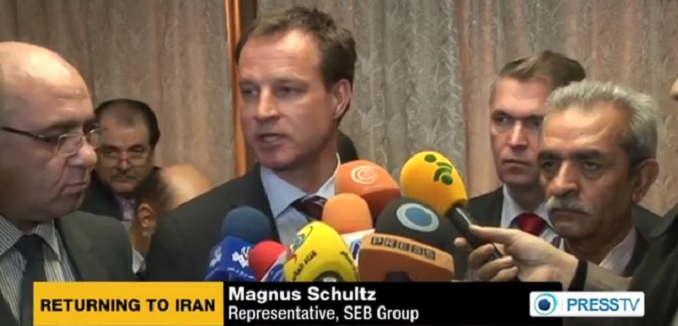The Swiss government yesterday fully suspended some trade bans on Iran and relaxed mandatory reporting requirements across a range of additional sectors, a day after news emerged that Iran intends to use banks in Japan, South Korea, and Switzerland to reestablish ties to the international financial system. Agence France-Presse reported on Tuesday that Tehran had settled on the banks it seeks to use as sanctions relief mandated by the Joint Plan of Action (JPA) takes hold, after years in which American and European restrictions “had effectively shut Iran out of the international banking system, making all foreign trade difficult.”
“Under the Geneva agreement, a banking mechanism is to be designated by the United States and Western countries… for purchases of food products, medicines and medical equipment,” said Abbas Araqchi, one of Iran’s top negotiators. “Banks from Japan, South Korea and Switzerland have been selected,” Araqchi told Iranian media, without naming the banks.
Yesterday Switzerland’s Federal Council announced that the country was suspending its ban on the trade of precious metals with Iran, relaxing mandatory reporting requirements on sectors associated with the trade of Iranian petroleum, and increasing tenfold the threshold for declaring money transfers to the Islamic Republic. The suspensions are set to remain in effect at least through August 2014. The developments come as Obama administration officials scramble – most recently and publicly in Turkey – to convince countries and companies that Iran is not yet “open for business” despite the JPA-driven erosion in the international sanctions regime. Washington’s success in conveying the sentiment has been uneven, and empirical evidence is growing of a global race to reenter Iranian markets. Meanwhile Turkish Prime Minister Recep Tayyip Erdogan yesterday hailed the rebirth of Turkey-Iran ties, and a group of British lawmakers revealed that a delegation of Iranian parliamentarians would soon visit Britain. Tehran’s moves to shrug off its economic and political isolation came as Director of National Intelligence James Clapper reported yesterday to the Senate Select Committee on Intelligence that Iran can now build and deliver nuclear weapons.
In the “US Intelligence Worldwide Threat Assessment,” delivered to the Senate Select Committee on Intelligence, Clapper reported that Tehran has made significant advances recently in its nuclear program to the point where it could produce and deliver nuclear bombs should it be so inclined. “Tehran has made technical progress in a number of areas — including uranium enrichment, nuclear reactors, and ballistic missiles — from which it could draw if it decided to build missile-deliverable nuclear weapons,” Clapper wrote. “These technical advancements strengthen our assessment that Iran has the scientific, technical, and industrial capacity to eventually produce nuclear weapons. This makes the central issue its political will to do so.”
[Photo: PressTV Videos / YouTube]




